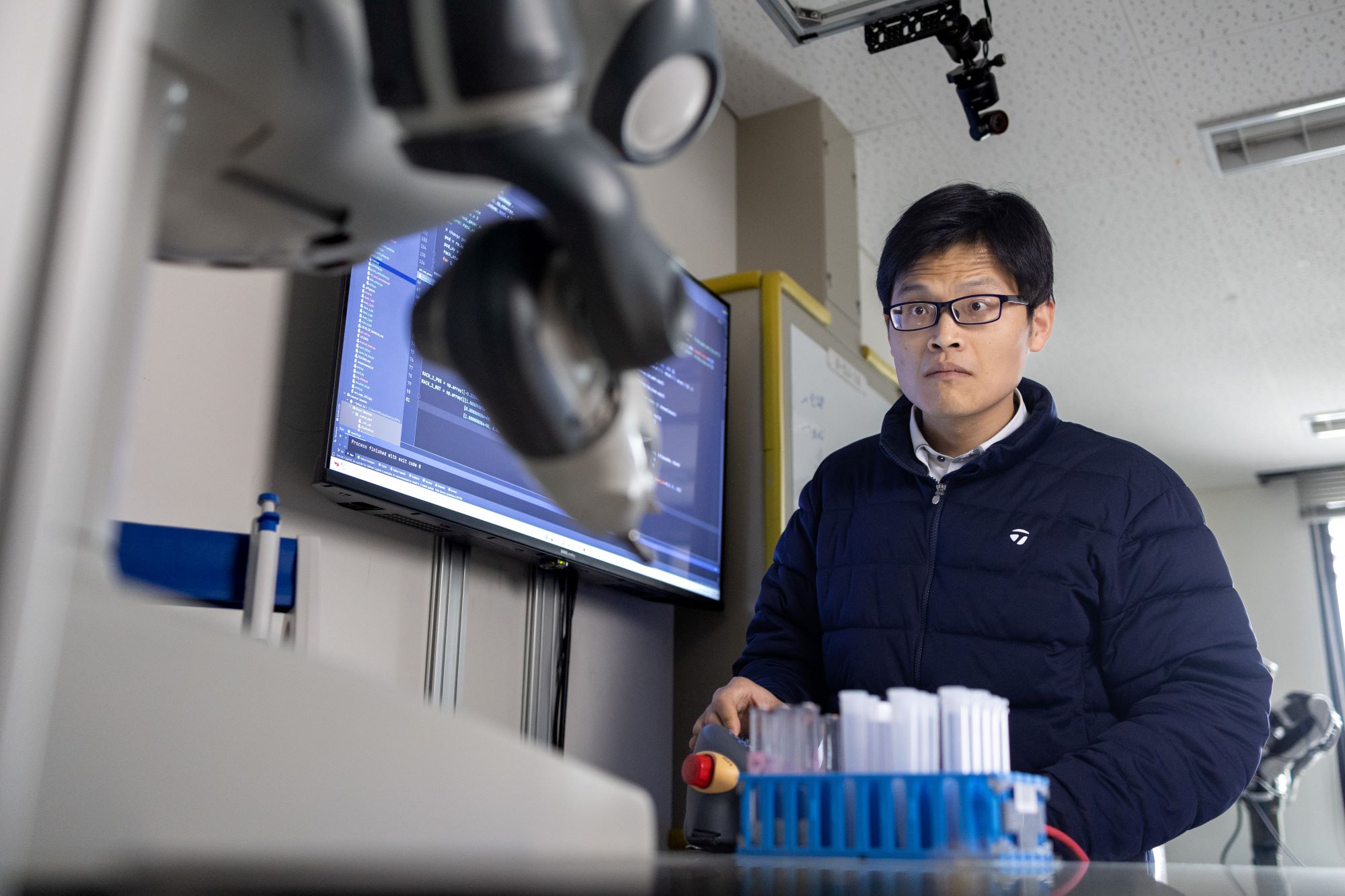
Dr. Weiwei Wan, Associate Professor, Graduate School of Engineering Science
"Navigating the frontiers of robotics for precision manipulation in manufacturing and healthcare"
Efficiency, precision, and adaptability are critical in the rapidly evolving landscape of robotics, where the fusion of hardware engineering and artificial intelligence stands at the forefront of innovation. Among the frontrunners in this transformative field is Associate Professor Weiwei Wan, a rising star in advancing robot operating systems to control and process various interfaces in robots used in various fields, from manufacturing to healthcare.
Dr. Wan first came to Japan in 2010 to do his doctoral study at the Graduate School of Information Science and Technology, The University of Tokyo, after obtaining his master’s degree from Peking University. He did his postdoctoral research at the Manipulation Lab in the Robotics Institute, Carnegie Mellon University under the JSPS program from 2013 to 2015. He then returned to Japan to join a division working on humanoid robots for industrial use at the National Institute of Advanced Industrial Science and Technology (AIST). Dr. Wan joined the group that worked on robotic manipulation, led by Professor Kensuke Harada. After Professor Harada joined Osaka University, Dr. Wan was invited to join his lab as associate professor in 2017.
Dr. Wan’s expertise in motion planning, a critical component in the seamless coordination of dual-arm robots within factory, laboratory, and clinical settings, requires him to use and integrate various research tools to develop robots with top-notch sensing and motion control capabilities. Working closely with university and industry researchers in manufacturing and healthcare fields, Dr. Wan develops and deploys grasping planning, motion planning, and other low-level and high-level task planning algorithms tailored for next-generation robots suitable for precision manipulation. He also uses AI to develop robots that can autonomously adapt to changing surroundings, optimize resource utilization, and orchestrate intricate sequences of actions with minimal human intervention.

Outside his lab, Dr. Wan participates in several scientific associations, such as the IEEE Robotics and Automation Society, IEEE System, Man, and Cybernetics Society, RSJ (the Robotics Society of Japan), and JSME (Japan Society of Mechanical Engineers). In addition, he also co-organizes international conferences in Japan, leveraging his vast network and organizational skills.
When asked about his research environment, Dr. Wan feels satisfied with the facilities and support that he receives from the university. He is also happy with the freedom he has to pursue his research, although along with the growing size of his group, he needs to spend more time supervising his students, many of whom come from outside Japan. According to him, living and raising his family in Osaka has been relatively easy, especially since he speaks fluent Japanese and childcare services are available on campus. Dr. Wan mentioned that his senior once told him about the phases that international researchers living in Japan usually go through: surviving, living, and enjoying. The initial survival phase is usually tough, but it gets better in time.
Text: Clement Angkawidjaja/Edit: Christopher Bubb